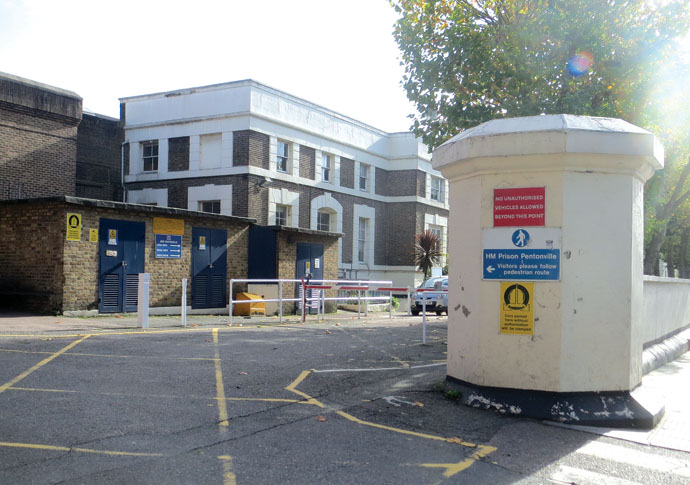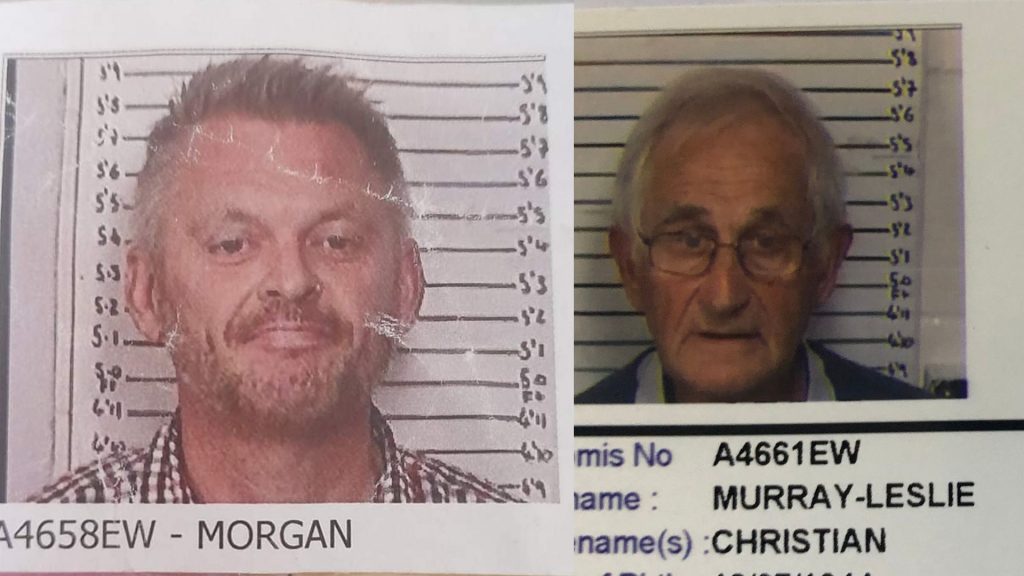Prison’s ‘chronic’ problems are exposed in latest report
“It is hard to avoid the conclusion that Pentonville cannot safely and decently care for its current population,” according to report
Friday, 21st October 2022 — By Anna Lamche

Pentonville Prison
From high suicide rates to illicit drug use to poor inmate opportunities, a shocking report has yet again exposed “profound”, “chronic” and “entrenched” problems at work in Pentonville Prison.
Published this week by the Inspectorate of Prisons, a new monitoring report highlights a barrage of seemingly intractable, “deep-rooted” difficulties faced by the jail in Caledonian Road.
The prison has long been beset by a raft of “profound problems”, the report said, with the last full inspection in 2019 being “no exception to this sorry history”.
Since then, only “fragile progress” has been made, with the prison “still not good enough” in all key areas of safety, respect, purposeful activity, rehabilitation and release planning. While the report found some improvements to inmate safety had been made since the last full inspection, with the level of violence between prisoners falling by 30 per cent, seven inmates had committed suicide since the last inspection in 2019.
The report suggested inmates with mental health problems “had long waits for appointments”. Meanwhile, the level of prisoner respect remains below expected standards, with prisoners living in “cramped” and “overcrowded” cells.
Inspectors also saw evidence of “rude and dismissive behaviour by staff” to inmates. The new report also saw the prison slip backwards on its provision of “purposeful activity”, meaning only about a quarter of inmates had access to meaningful work, training or education during the day, with prisoners often locked in cells for over 22 hours at a time.
At the same time, planning for rehabilitation and release of prisoners remained not good enough, with prisoners on remand often being released “without accommodation or a job”.
Successive reports on Pentonville bear witness to a “sorry history” of disturbing conditions in the jail. Built in 1842, it is one of the oldest prisons in the country, described in the report as “a cramped early Victorian relic, with claustrophobic wings and a crumbling physical infrastructure”.
Initially designed to hold 520 people in single cells, the prison now holds over 1,100 inmates, with two people crammed into a cell designed for one. There is a high turnover of prisoners as many are held at Pentonville on remand before sentencing.
“It is hard to avoid the conclusion that Pentonville cannot safely and decently care for its current population,” the report said.
On top of this, the report found:
- Drugs are still in circulation within the prison, with inmates “clearly smoking illicit substances on the wings without consistent challenge by staff”. In the past six months, officers have found over 250 illicit items, mostly drugs, weapons and mobile phones in the prison;
- Meals were served too early, with lunch served between 10.30am and 11am and the evening meal served at 4pm, while “breakfast packs” were handed out at lunchtime the day before they were supposed to be eaten;
- Many prisoners were going days without a shower because of “insufficient” facilities;
- 40 per cent of prisoners said they feel unsafe in the prison, which is worse than the average 23 per cent in other prisons;
- Body cameras were not worn often enough by staff, and footage was often deleted after one month, “undermining accountability”.
Andrew Neilson, of the Howard League for Penal Reform, said: “At the last full inspection in 2019, inspectors raised concerns about safety and decency in Pentonville, insisting that the ‘depressing cycle of promise and further decline cannot be allowed to continue’. But today’s report reveals that little has changed, and seven men have died by suicide in the three years since.
“Ministers should act now to save lives. We cannot go on cramming more and more people into jails such as Pentonville without any thought for the consequences. The solution to this enduring crisis begins with sensible steps to reduce the prison population.”
A Prison Service spokesperson said: “Since this inspection our life- saving pandemic restrictions have ended and prisoners are spending more time engaging with activities out of cells to boost their rehabilitation. “The prison has also introduced a new wing to provide additional mental health support for neurodiverse prisoners.”
‘There was a Kafkaesque feeling in there’

Rich Morgan and Christian Murray-Leslie waited in Pentonville to be sentenced
Arriving on remand at HMP Pentonville last month, climate protesters found themselves “banged up” for 23 hours a day in “filthy”, overcrowded cells.
Christian Murray-Leslie and Rich Morgan were two of the 51 protesters to be arrested after taking part in a Just Stop Oil blockade at Kingsbury Oil Terminal in Warwickshire. They were sent to Pentonville Prison while they waited to be sentenced.
Mr Murray-Leslie, a retired doctor from Derby, described arriving in his cell on the prison’s A Wing: “The cell was in an indescribable state when we got in: there was litter, dust, filth, and food remains on the floor. Other people’s clothes were heaped up in the corner of the room and the toilet was filthy. Nothing worked,” he said.
“It was a horrid place. We were banged up for 23 hours a day – you’re allowed out for an hour to walk the landings. In eight days I had two spells in the outside yard,” he said.
“Some people cope by watching television all day. I managed to get two books in.” Mr Murray-Leslie said he was concerned about the mental health of other inmates on the wing.
“There were an awful lot of distressed people – people wandering around just staring into space. I’m sure they were mentally ill – people who shouldn’t be in prison.”
He said the building itself was “something out of the 19th century,” but said he never felt unsafe during his eight-day stay. “I wasn’t frightened by anything, just bored.”
He said of the prison officers: “They need help, they need resources, they need money and support to do a difficult job. They did the best they could possibly do under the circumstances, but it was impossible.
“Prisons have been run down over decades. There are a lot of people banged up and their quality of life is horrendous.” Mr Morgan, a town councillor from Somerset, described finding a “toothbrush with a razor blade in it” hidden within his cell.
He was also concerned by prisoners “who clearly had mental health issues”. He said of staff: “They seem demotivated. Not uncaring, but they seemed robotic, and beaten down. There was a Kafkaesque feeling in there.”
Mr Murray-Leslie and Mr Morgan were released with suspended sentences in late September.